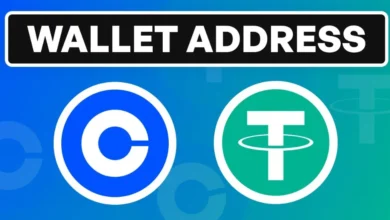How Long to Get a Business Degree: Fast-Track Secrets

A business degree at the undergraduate level typically takes four years to complete. This duration can be extended if you opt for a part-time program or shorter if you pursue accelerated courses.
Securing a business degree opens numerous career opportunities. It provides a comprehensive understanding of corporate operations, finance, marketing, and management. Pursuing a business degree is a strategic step towards equipping oneself with the essential skills and knowledge coveted in the business world.
As the economy evolves, a business degree remains versatile, adapting graduates for various sectors. Universities worldwide offer business programs catering to various interests, including international business, entrepreneurship, and e-commerce. Committing to a business degree program lays the foundation for a successful venture into the professional arena, affording graduates the flexibility to navigate an ever-changing economic landscape.
Contents
- 1 Intro To Business Degrees
- 2 Degree Types & Duration
- 3 Fast-tracking The Bachelor’s Degree
- 4 online Education: A Swifter Alternative
- 5 Transfer Credits And Dual Credit Programs
- 6 Internships And Experiential Learning
- 7 Clever Course Selection Strategies
- 8 Effective Time Management
- 9 Pros And Cons Of Fast-tracking
- 10 Final Thoughts: Is Speed Everything?
- 11 Conclusion
Intro To Business Degrees
Welcome to the world of business education! A business degree is a significant step towards a successful career. Let’s explore the different timeframes and paths to earning this credential.
Time Investment Variation
The duration to obtain a business degree varies. Factors influencing duration include program type, academic pace, and credit requirements.
- Associate’s Degree: Typically around two years.
- Bachelor’s Degree: Generally spans four years.
- Master’s Degree: Usually takes 1-2 years post-bachelor’s.
- Doctorate Degree: Often four years or more after a master’s.
Traditional Vs. Accelerated Paths
Students have options: the traditional route or an accelerated path.
| Traditional Path | Accelerated Path |
| Follows standard semester systems. | Involves intensive courses and shorter semesters. |
| Suitable for students seeking a steady pace. | This is meant for those aiming for a quicker completion. |
| Enables deeper immersion into subjects. | Demands higher commitment and effort. |
Degree Types & Duration
Choosing the right business degree depends on your career goals and timeframe. Degree types vary in length and depth of study. Let’s explore the options available.
Associate Degrees: The Quickest Route
An Associate Degree in Business can be the fastest way to jumpstart your career. Usually completed in two years, these programs offer a solid foundation. Students learn key business concepts and skills.
- Time to complete: 2 years
- Focus: General business knowledge
- Outcome: Entry-level positions
Bachelor’s Degrees: The Standard Choice
A Bachelor’s Degree in Business is the most common approach. Taking up to four years, this path provides comprehensive knowledge. It prepares graduates for diverse business careers.
| Time to complete | Focus | Outcome |
| Four years | Versatile business education | Wide career options |
Master’s & Mba Programs: The Advanced Pursuit
For more profound expertise, a Master’s or MBA is ideal. Masters take 1-2 years, while MBAs focus on practical leadership skills. Both elevate your business understanding to the next level.
- Masters: 1-2 years, specialized knowledge
- MBA: 1-2 years, leadership and management skills
Fast-tracking The Bachelor’s Degree
Time is precious. Many students wish to grab their business degree quickly, aiming to enter the workforce sooner. A standard business degree usually takes four years. But what if you could shorten that time? Yes, it’s possible. Here’s how potential graduates can fast-track their Bachelor’s in Business Administration.
Credit Overloading And Its Benefits
One method is credit overloading. This means taking more courses per semester. It’s a direct approach to speeding up graduation. Here are the benefits:
- Reduced time: More credits mean completing the degree faster.
- Cost-effective: Graduating earlier can cut down on tuition costs.
- Competitive edge: Entering the job market early can provide a head start.
Credit overloading needs dedication and time management. It’s ideal for focused students. They must handle increased workloads efficiently. Check with your college if it allows credit overloading. Note the impact on study, rest, and personal time.
Summer Sessions To Reduce Time
Another path is summer sessions. It’s a wise choice to stay on track. Here’s why:
- Summer courses mean extra credits without overloading regular semesters.
- They can lighten future semesters, allowing for internships or work experiences.
- Subjects often have smaller classes, enabling personalized attention from instructors.
Summer sessions are intensive but fruitful. They can bring you closer to your degree. They are an opportunity for students to maximize their time. Balance is key. Enjoy the summer while moving towards your goals.
Fast-tracking a business degree is rewarding. It opens doors to opportunities earlier. It requires a solid commitment to your education. Plan wisely. Embrace these methods. You can walk the stage quicker than you might think!
online Education: A Swifter Alternative
Online education opens up new doors to earning a business degree faster. Unlike traditional classes, online courses often offer more flexibility. This makes them ideal for those eager to finish their education sooner. Many find the alternative appeals to their swift-paced lifestyle. Let’s delve into how online education can speed up this journey.
Choosing The Right Online Program
The first step is to find the right online business degree program. Look for accredited institutions that offer comprehensive curricula. Also, consider those that match your career goals. To aid in your decision, here is a quick checklist to consider:
- Accreditation: Ensure the program has proper accreditation.
- Resources: Check for learning materials and support services.
- Flexibility: Look for programs with flexible schedules.
- Networking opportunities: Choose one that allows you to connect with peers and professionals.
Self-paced Courses For Quicker Completion
Self-paced courses give you control over your learning speed. This means you can complete your degree in less time. There is no need to wait for semesters to start or end. If you’re motivated and disciplined, you can finish courses as quickly as you can study. Check out these benefits of self-paced online courses:
| Benefit | Description |
| Flexibility | Study anytime, and manage your schedule. |
| Faster Completion | Skip the wait and finish courses sooner. |
| No Geographical Boundaries | Learn from anywhere in the world. |
You can begin your program anytime and move through the material as fast as you want. This route can significantly shorten the typical business degree timeline.
Transfer Credits And Dual Credit Programs
Understanding Transfer Credits and Dual Credit Programs can speed up your journey towards a business degree. These options provide flexibility and can significantly reduce your time in the classroom. Let’s explore how they work and their impact on the duration of obtaining a business degree.
Moving credits from one institution to another is critical in shortening your study period. Begin by checking your current school’s transfer policies. Schools often have partnerships that guarantee credit acceptance. Here’s a quick rundown:
- Check accreditation: Only credits from accredited institutions typically transfer.
- Know the limits: Schools may cap the number of transferable credits.
- Compare course outlines: Credits transfer if courses match closely.
Enrolling In Dual Credit Courses
Dual Credit programs allow students to earn college credits while still in high school. This gives a head start on a business degree. Keep these points in mind:
- Choose dual credit courses aligning with your business degree path.
- Ensure the college credits will transfer to your future business school.
- Complete courses to earn both high school and college credits.
Internships And Experiential Learning
Getting a business degree involves more than just classroom learning. Hands-on experiences like internships and experiential learning play a crucial role. These practical experiences can shape your career and often fast-track your education. Let’s dive into how they fit into your journey toward a business degree.
Internships That Offer Credit
Internships can be game-changers in your educational journey. Many business programs offer internships for credit, reducing classroom time. You gain real-world experience while earning credits and achieving two goals at once. Here’s how you can benefit:
- Networking opportunities: Meet professionals in your field.
- Resume boost: Add relevant experience to your resume.
- Applying knowledge: Use what you learn in actual business scenarios.
Contact your college’s career centre to find internships for credit. They can help you identify the right opportunities.
Experiential Learning To Accelerate Graduation
Experiential learning integrates knowledge with practical application. This learning approach can speed up your graduation timeline. Projects, simulations, and fieldwork make the theory come alive. Consider the following:
| Experiential Learning Method | Benefits |
| Capstone Projects | Tackle real business problems and demonstrate skills. |
| Simulations | Engage in business decision-making scenarios. |
| Fieldwork | Observe and participate in business operations. |
Speak with your advisor about how these experiences can replace some traditional classes. Accelerate your path to a degree while preparing for the business world.
Clever Course Selection Strategies
Imagine shaving months, or even years, off your journey to a business degree. Strategic course selection can make this dream a reality. Discover key shortcuts to earn credits before even stepping foot on campus. This guide offers intelligent strategies for prospective business students.
Prioritizing Clep Tests
Boost your college credits from the comfort of your home with CLEP tests. These exams cover intro-level college course material. Passing them means earning credit for subjects you already know. Check out these benefits:
- Save time: Less time in class equals a quicker degree.
- Reduce costs: Fewer courses mean lower tuition fees.
- Flexible schedule: Study and test when it suits you.
Here’s what to prioritize:
| Subject | Recommended For |
| Business Law | Law-oriented business roles |
| Marketing | Future marketers |
| Management | Aspiring managers |
Ap Classes And Exams
High school students can get a head start with AP classes. Excelling here can lead to college credit. Here’s how to leverage AP classes:
- Choose relevant classes related to business studies.
- Focus on studying to score high on AP exams.
- Research universities that recognize your hard-earned AP credits.
AP classes require commitment but offer valuable returns:
- Advanced skills garnered early on.
- Impressive applications with a college-level curriculum.
- Earned credits that shorten college duration.
Effective Time Management
Getting a business degree is a journey. It requires time and focus. Effective time management makes this journey smoother. Students juggle classes, homework, and personal life. Managing time well ensures success without overwhelming stress.
Balancing Work And Study
Balancing work and study demands a solid plan. Here’s how:
- Set clear goals – Define what you must achieve weekly.
- Create a timetable – Allocate time for classes, study, and work.
- Stay flexible – Unexpected tasks will pop up. Be ready to adjust.
Tools For Scheduling And Productivity
Tools help keep track of tasks. They boost productivity. Consider these:
| Tool | Function |
| Calendar Apps | Organize your days efficiently. |
| Task Managers | Break down projects into manageable tasks. |
| Time Trackers | Monitor how long tasks take. |
Choose tools that suit your lifestyle. Use them daily to stay on track.
Pros And Cons Of Fast-tracking
Choosing to fast-track a business degree comes with both perks and challenges. It might push your career forward quickly but demands serious consideration. Let’s weigh the pros and cons of this approach.
Considering The Quality Of Education
Fast-tracking a business degree means squeezing the usual coursework into a shorter timeframe. This intense schedule can affect the depth of learning.
Here are the main points to consider:
- Advantages:
- More coursework in less time means early graduation.
- Develop time management and prioritization skills.
- Disadvantages:
- Possible burnout from a heavy workload.
- There needs to be more time for networking and extracurricular activities.
The Impact On Career Opportunities
Entering the job market sooner could give you a head start. Yet, employers might weigh your experience differently.
| Pros | Cons |
| Early career start | Potential underestimation of skills due to shorter study period |
| Competitive edge with a degree completed earlier | Missed internship opportunities for hands-on learning |
| Quick return on educational investment | Possibly less comprehensive understanding of business concepts |
The decision to fast-track your degree impacts not just your education but your future career trajectory. Weigh these factors to make the choice that aligns with your goals and lifestyle.
Final Thoughts: Is Speed Everything?
When considering a business degree, one might ponder the importance of duration. A faster completion may seem appealing. Yet, a deeper dive reveals that haste doesn’t guarantee the best outcome. Let’s contemplate whether rushing through your education is the wisest move.
The Value Of Networking And Relationships
A critical part of business education lies beyond textbooks. Strong networks often define success. Academic time fosters connections with peers, professors, and industry experts. These relationships can catapult a career forward. They provide invaluable real-world insights and mentorship.
- Real-world connections help navigate complex business landscapes.
- Peer networks lead to collaborative opportunities and job leads.
- Mentorship from faculty can guide career trajectories.
Taking Time To Explore Specializations
Business is a broad field with many niches. Rushing through a program might cause one to miss discovering a passion. By taking time, students can explore courses in different specializations. This exploration ensures a more informed decision about career paths, and students gain the chance to excel in a domain they love.
| Specializations | Benefits |
| Marketing | Develops creative and strategic thinking. |
| Finance | Builds analytical and decision-making skills. |
| Entrepreneurship | Encourages innovative and independent thinking. |
Conclusion
Wrapping up, each individual’s journey to securing a business degree varies. Typically, four years is standard for full-time students, yet options like part-time study, accelerated programs, or advanced placement can alter this timeline. Commit to a plan that suits your pace and goals for an optimal educational experience.



